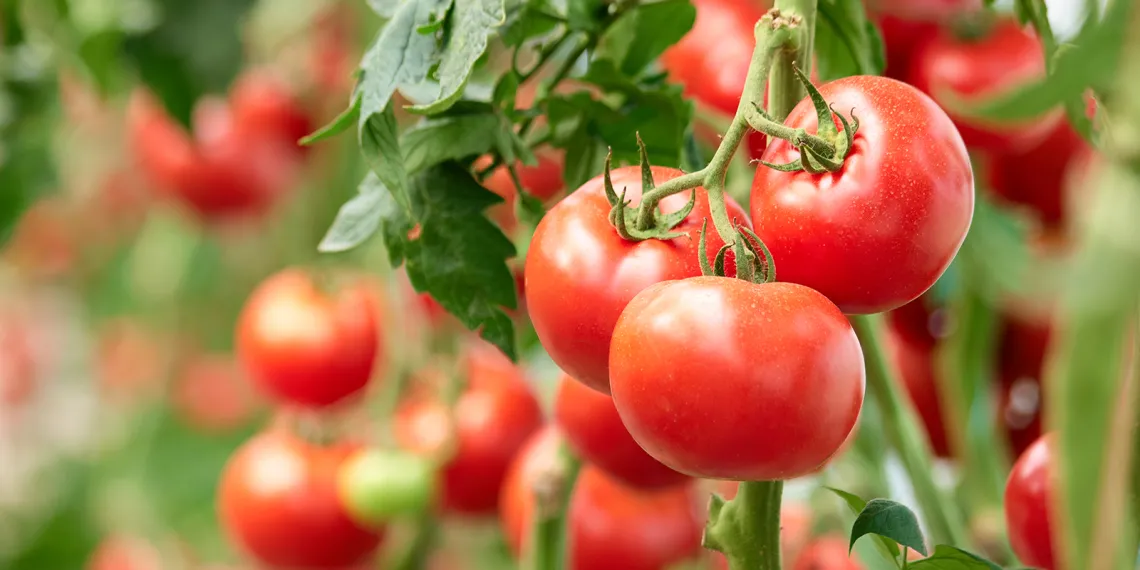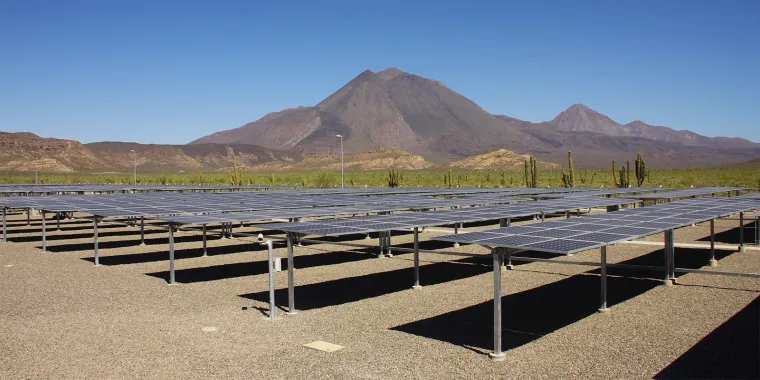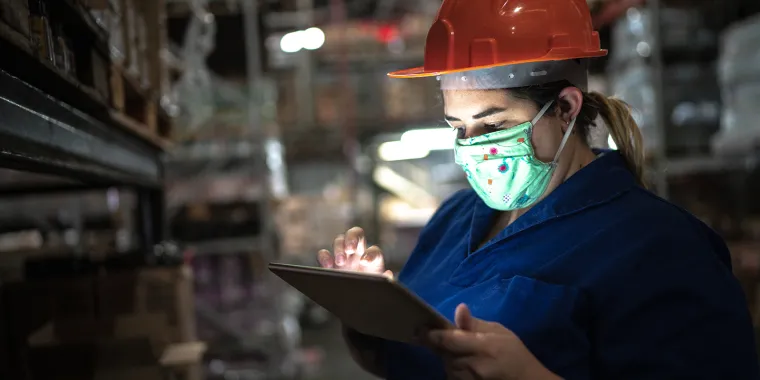A recent study from UA researchers found that tomatoes from Mexico contributed $4.8 billion in sales to the U.S. economy in 2016. Discover how U.S. food imports from Mexico support economic activity in the U.S. — and how COVID-19 is taking a toll.
The earliest documented produce imports from Mexico into the United States took place in 1895 when tomatoes from Mexico entered Nogales, Arizona. Oranges followed shortly after, birthing an industry that has continued to grow for more than a century.
Today, Mexico is the largest supplier of agricultural products to the United States, with imports of agricultural products totaling $26 billion in 2018. Fresh vegetables and fresh fruits are leading categories, with imports totaling $5.9 billion and $5.8 billion, respectively, in 2018.
According to Lance Jungmeyer, president of Nogales, Arizona-based Fresh Produce Association of the Americas (FPAA), imported produce from Mexico accounts for only a percentage of the produce grown and sold in the United States. Without produce imports from Mexico, though, Americans wouldn’t have consistent access to fruits and vegetables like leafy greens, berries and tomatoes that can’t be grown in U.S. winter climates. That means volatile produce costs for consumers and decreased access to nutritious food throughout the year.
But importing produce from Mexico is more than a matter of convenience, one study found; it’s a source of tens of thousands of jobs and billions of dollars of economic impact to the United States each year.
The Economic Ripple Effect
“The importation of Mexican produce is a considerable contributor to the economy in that it employs trucking companies, food wholesale, food service systems, and supplies the grocery and food service establishments in the United States,” says Dan Scheitrum, Ph.D., an assistant professor in the Department of Agriculture and Resource Economics at the University of Arizona.
The recent study by the University of Arizona Cooperative Extension and the Department of Agricultural and Resource Economics found U.S. and Canadian imports of fresh tomatoes from Mexico contributed an estimated $4.8 billion in total economic activity to the U.S. economy and supported nearly 33,000 full- and part-time jobs in 2016. This impact is the result of forward linkages in the supply chain.
Forward linkages occur when industries provide their services to deliver goods to end users or consumers. The study, commissioned by the FPAA, found forward linkages after tomatoes cross into the United States totaled an estimated $2 billion in direct wholesale, retail, foodservice and transportation activity in 2016.
Demand for those goods and services also indirectly support demand for additional inputs and labor, stimulating additional rounds of economic activity referred to as multiplier effects. Accounting for multiplier effects, the total contribution of imported Mexican tomatoes to the U.S. economy in 2016 was an estimated $4.8 billion in sales.
Backward linkages, in addition to forward linkages, contribute to the economy when foreign producers purchase agricultural inputs from U.S. suppliers.
“A box of tomatoes that comes to the United States might have a seed that was produced by one of the major seed companies in the United States and sold by an Arizona-based seed distributor to the farm in Mexico,” Jungmeyer says. “It also probably had some agricultural inputs on the farm, whether those be chemicals or the drip tape. Then it’s put in a box that’s oftentimes printed and pre-formed in Arizona, but made using paper pulp that comes from Georgia.”
The Impact of COVID-19 on Agribusiness
Fast-forward to 2020, and the agribusiness supply chain is facing unprecedented challenges brought on by the coronavirus pandemic.
A leading challenge of COVID-19, according to Dr. Scheitrum, is the disruption in where food is being consumed.
“Now that consumption is not happening at restaurants, at hotels and at fast food services, it’s generally taking place in the home where food is being procured at grocery stores or take away, and those are really the only options,” he says.
That means producers that are well-suited to distribute food to restaurants and the food service industry are struggling to find a market for their products. In some cases, these producers are leaving their produce in the fields because there’s not an appropriate destination for it. In other cases, the lack of demand has driven prices so low that producers are finding it’s not worth the cost to pay someone to pick the fruit and then get it get it to market.
“Then it’s just left in the field to rot or get tilled over,” Dr. Scheitrum says.
Sergio Puig, professor of law at the University of Arizona and director of the international trade and business law program, pointed to another critical challenge: keeping the people who work in the fields safe. “They have to be working in order for us to have food.”
Likewise, producers are tasked with keeping supply free from contamination and reducing the likelihood of the virus transmitting to the food. That means making provisions for personal protective equipment like gloves, masks and face shields, and also implementing additional sanitation procedures.
According to Jungmeyer, the produce industry does have an advantage amid the coronavirus pandemic: It’s one of the quickest industries to adapt to new market changes because its market is always changing. “The produce industry goes up and down very quickly because it’s a perishable product,” he says. “The companies that operate in this area are used to having to reinvent themselves a lot.”





